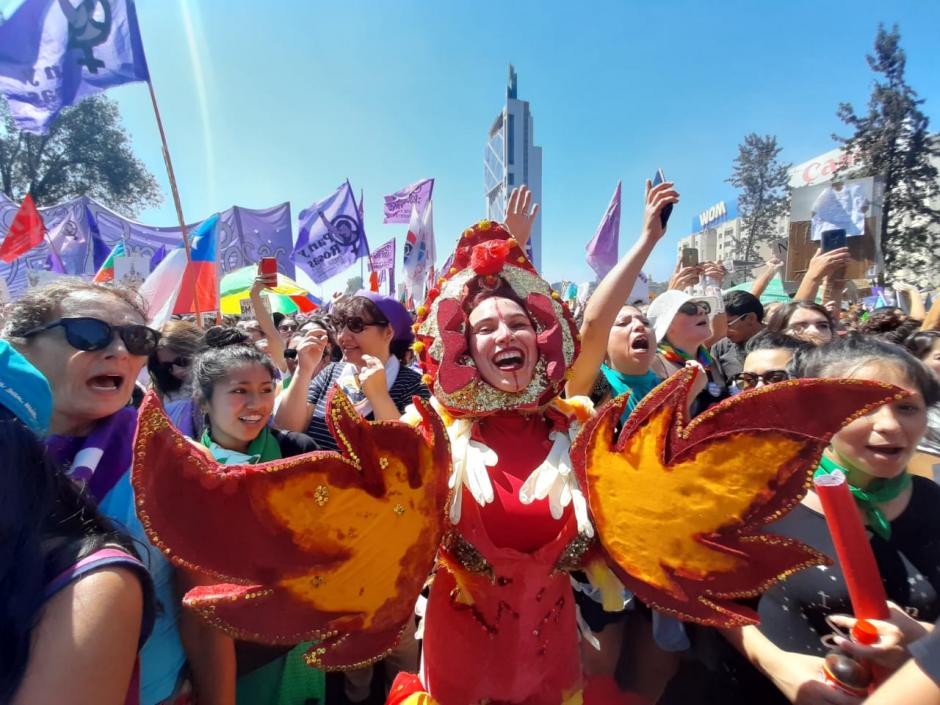
Horizontality as a clamor
Every November 25th, we commemorate the assassination of the Mirabal sisters, Patria, Minerva and Maria Teresa, three Dominican women who were murdered on this day in their country in 1960. It was until 1999 that the UN declared every November 25th as the International Day for the Elimination of Violence against Women.
For New Humanism or Universalist Humanism, violence "is the simplest, most frequent and effective way to maintain power and supremacy, to impose one's will on others (...)"[1]. We have to see that there are different types of violence, be it racial, ethnic, social, economic, etc., however, violence against women is transversal to all types of violence, present in every area of their lives, reminding them every minute that they are women and that the patriarchal system has put them in a position of disadvantage, discrimination and systematic violence.
Violence against women, especially when practiced by their partners, reflects the fact that even though women have made great strides in their process of claiming and liberation, structural and direct violence is the central mechanism for creating and maintaining unequal relations of oppression and exploitation in societies that have deceitfully boasted of being egalitarian, democratic, peaceful and progressive.
Violence against women stands as a serious public health problem, generating significant physical, mental, sexual and reproductive health problems in the short and long term, and is a systematic violation of women's human rights. Estimates made by the WHO warn that one out of every three women in the world, that is, 35% of them, have suffered physical or sexual violence from their partner or a third party at some point in their lives. In addition, it should be noted that 38% of the murders of women in the world are carried out by their male partners.
The COVID-19 pandemic has further deepened violence against women in many countries, increasing not only the likelihood of violence, but also "increasing levels of cruelty and lethality by the perpetrator against women”[2]. However, since patriarchal violence against women is multifactorial and systemic, it is expressed in multiple forms in addition to physical and psychological violence, such as patrimonial violence (it is sufficient to check the proportion between male and female owners in the property records of any country) and institutional violence (such as forced maternity, obstetric violence, labor discrimination and harassment), among others.
The current social and political situation has allowed progress in the visibility of gender violence, a situation that has been made possible by feminist demonstrations, revealing its transversal character and that responds to the particularities of each woman. However, the institutional framework has made it clear that it is completely incapable of responding to the demands that the feminist movement has raised.
We humanists observe and recognize the State as the producer and reproducer of violence, and therefore we demand its responsibility and obligation to guarantee a life free of violence for women, girls, and dissidents.
In order to advance in the elimination of this form of violence, it is of utmost importance to have spaces for the organization of women and dissidents that can confront violence, as well as the strengthening of feminist strategies that allow them to live and relate, such as: self-valence, self-education, self-defense, and support networks. In addition, it is fundamental to consolidate the organization and territorial insertion of women and dissidents, so that together we can fight for the eradication of violence.
It is necessary to investigate and analyze new forms of exercising justice, which do not only respond to institutional punitivism, but also consider education and reparation as central axes. But this does not mean that we should not persevere in demanding justice for the violations and transgressions of women's rights and dissidents. No more impunity for the aggressors!
Active nonviolence is the methodology of action that we humanists have decided to use. This means promoting concrete actions to raise awareness, denounce, protest, resist, disobey and counteract the different forms that violence takes. Therefore, we maintain the need to advance towards a culture of non-violence, based on personal freedom, social solidarity, solidarity, equality and non-tolerance of violence.
We humanists propose that the human being be placed at the center of the construction of our society, recognizing the multiple forms of violence experienced by women, sexual dissidents, girls, boys, and all feminized bodies. It is imperative to build public policies that give women greater access to justice, sexual and emotional education, as well as ensuring their good life as human beings.
Consequently, the International Humanist Party calls to sustain and deepen the visibility and the denunciation of the systematic violence that women experience and to never give up in the face of any form in which this violence is expressed.
International Coordination Team
Federation of Humanist Parties
[1] Dictionary of New Humanism.
[2] Research "The Invisible Pandemic". https://pandemiainvisible.lalupa.press/
